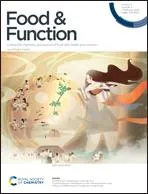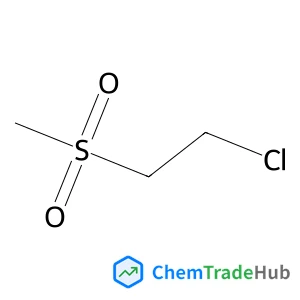Water extract of green tea attenuates alcohol-related hepatitis by inhibiting liver inflammation and gut microbiota disturbance in mice
文献情報
Guoqing Xia, Zixuan Li, Xiaodong Sheng, Zhongwen Xie, Qian Fang, Cheng Zhang, Tiantian Wang, Yulian Wang, Baoming Wu, Xiongwen Lv
Green tea is one of the main types of tea in China, and it has been widely consumed in the world. This study aims to investigate the potential mechanism by which the water extract of green tea (GTWE) may be effective in the treatment of alcohol-related hepatitis (ARH), utilizing a combination of network pharmacology, molecular docking, and experimental validation. Through network pharmacology analysis, seven active components and 45 potential targets were identified, with TLR4 being confirmed as the central target. Experimental findings demonstrate that GTWE exhibits significant efficacy in mitigating alcohol-induced liver inflammation and steatosis. Furthermore, the administration of GTWE has demonstrated significant efficacy in mitigating alcohol-induced intestinal inflammation and microbiota disturbance while concurrently restoring intestinal barrier function. Consequently, GTWE exhibits considerable potential as a pharmacological intervention and warrants further research and development as a lead compound for the treatment of ARH. Moreover, the prospective utilization of green tea in prolonged intakes exhibits potential as a prophylactic nutritive regimen against ARH.
関連文献
IF 6.222
Life cycle assessment of power-to-gas with biogas as the carbon sourceIF 6.367
Front coverIF 6.222
PEST (political, environmental, social & technical) analysis of the development of the waste-to-energy anaerobic digestion industry in China as a representative for developing countriesIF 6.367
Near infrared light activation of an injectable whole-cell cancer vaccine for cancer immunoprophylaxis and immunotherapyIF 6.843
Contents listIF 6.222
Mechanism of lignocellulose modification and enzyme disadsorption for complete biomass saccharification to maximize bioethanol yield in rapeseed stalksIF 6.367
An improved fluorescent protein-based expression reporter system that utilizes bioluminescence resonance energy transfer and peptide-assisted complementationIF 6.222
Synthesis of aviation fuel from bio-derived isophoroneIF 6.367
Retraction: Chemical synthesis and antigenic activity of a phosphatidylinositol mannoside epitope from Mycobacterium tuberculosisIF 6.222
掲載誌
Food & Function

Food & Function provides a unique venue for physicists, chemists, biochemists, nutritionists and other food scientists to publish novel, cutting-edge, original research focussing on food, its nutrients and their relation to human health and nutrition. We welcome research describing the: Physical properties and structure of food and how this relates to sensory perception and human health Biochemical and physiological actions of food components Interactions between foods, gut microbiota and human physiology Nutritional and biological evaluation of food Clinical and population studies using food or food components Development of biomarkers of food intake and effects on human health We also welcome systematic reviews and meta-analyses of existing studies in the literature, provided these are objective and scientifically valid Food in this context is defined as materials of plant, animal or mineral origin, which are consumed orally (by humans) for pleasure and to sustain growth and vital processes. Examples of research topics that are of interest to be published in Food & Function are: Chemistry and physics of food components and digestion processes Relationship between the physical properties/structure of food and nutrition and human health - for example, impact of food matrix or processing on nutrient release and uptake Molecular properties and physiological effects of food components (nutrients, fibres, essential micronutrients, phytochemicals, bioactives, food substitutes, novel ingredients, allergens, flavours and fragrances) Nutritional and health effects of food including bioavailability and metabolism assessment of food components (nutrients, micronutrients and other microconstituents) Efficacy and mechanisms of food constituents in the body - including biomarkers of intakes, exposure and effects Impacts of foods/food components on gut microorganisms and human physiology - For example impact of fermented foods Role of nutrition and diet in human disease prevention and development Cellular and molecular effects/mechanisms of food/food components image block The following types of research are not within the scope of Food & Function: Research relating to traditional herbal medicines, medicinal plants or active compounds extracted from such plants (materials that are primarily consumed as medicine, i.e. the intended purpose is primarily to treat, cure or prevent a non-deficiency disease) or relating to foods not recognised as human diet contributors Animal nutrition research that is not primarily designed as a model to benefit human nutrition (for example, studies of growth/accretion, heat stress, weaning, ruminant digestion, meat quality, etc.) Treatments administered by non-oral routes such as injection (subcutaneous, intramuscular, intraperitoneal, etc.), dermal/transdermal, rectal, inhalation, nasal, etc. Exceptions are when such routes of administration are used for mechanistic/control purposes in the experimental design Pharmacological/pharmaceutical approaches: Encapsulation, emulsification and/or pure controlled release of compounds or bioactives that do not come directly from edible foods, such as dietary supplements - these are better suited to a pharmaceutical journal In vitro or in vivo studies with poorly defined (insufficiently characterised) extracts and studies without appropriate controls will not be considered Cells studies not considering the metabolism of food components ingested – for example, irrelevant exposure of cells to compounds not present in the body after absorption Manuscripts with only a fully theoretical/bioinformatic approach and without appropriate support from analytical evidence will not be considered for publication Studies focussing solely on food engineering, preservation and sustainable technologies – these can be published in our companion journal Sustainable Food Technology Pure food analysis - these can be published in Analytical Methods
おすすめサプライヤー
 郑州聯創食化工貿有限会社
郑州聯創食化工貿有限会社 揚中ウォッtonsジェミック株式会社
揚中ウォッtonsジェミック株式会社 hps Labor—und Bürositzmöbel OHG
hps Labor—und Bürositzmöbel OHG 昂得生化科技(上海)有限公司
昂得生化科技(上海)有限公司 焜华機械有限公司 湖州分公司
焜华機械有限公司 湖州分公司 盐城遠東化工有限公司
盐城遠東化工有限公司 サイエル・ライスING (北京)ライフサイエンステクノロジー有限会社
サイエル・ライスING (北京)ライフサイエンステクノロジー有限会社 TKT—Kunststoff—Technik GmbH
TKT—Kunststoff—Technik GmbH Allweiler 事業部門 Exzenterschneckenpumpen
Allweiler 事業部門 Exzenterschneckenpumpen 辽宁华兴グループ化学株式会社
辽宁华兴グループ化学株式会社














![697235-38-4 - Methyl (1R,2R,3S,3aR,8bS)-6-({(2S,3R,6R)-6-[(1R)-1,2-dihydroxyethyl]-3-methoxy-1,4-dioxan-2-yl}oxy)-1,8b-dihydroxy-8-methoxy-3a-(4-methoxyphenyl)-3-phenyl-2,3,3a,8b-tetrahydro-1H-benzo[b]cyclopenta[d]
furan-2-carboxylate 697235-38-4 - Methyl (1R,2R,3S,3aR,8bS)-6-({(2S,3R,6R)-6-[(1R)-1,2-dihydroxyethyl]-3-methoxy-1,4-dioxan-2-yl}oxy)-1,8b-dihydroxy-8-methoxy-3a-(4-methoxyphenyl)-3-phenyl-2,3,3a,8b-tetrahydro-1H-benzo[b]cyclopenta[d]
furan-2-carboxylate](/structs/697/697235-38-4-ee3a.webp)